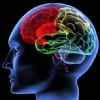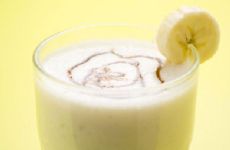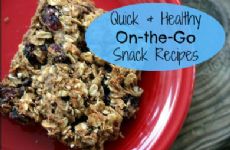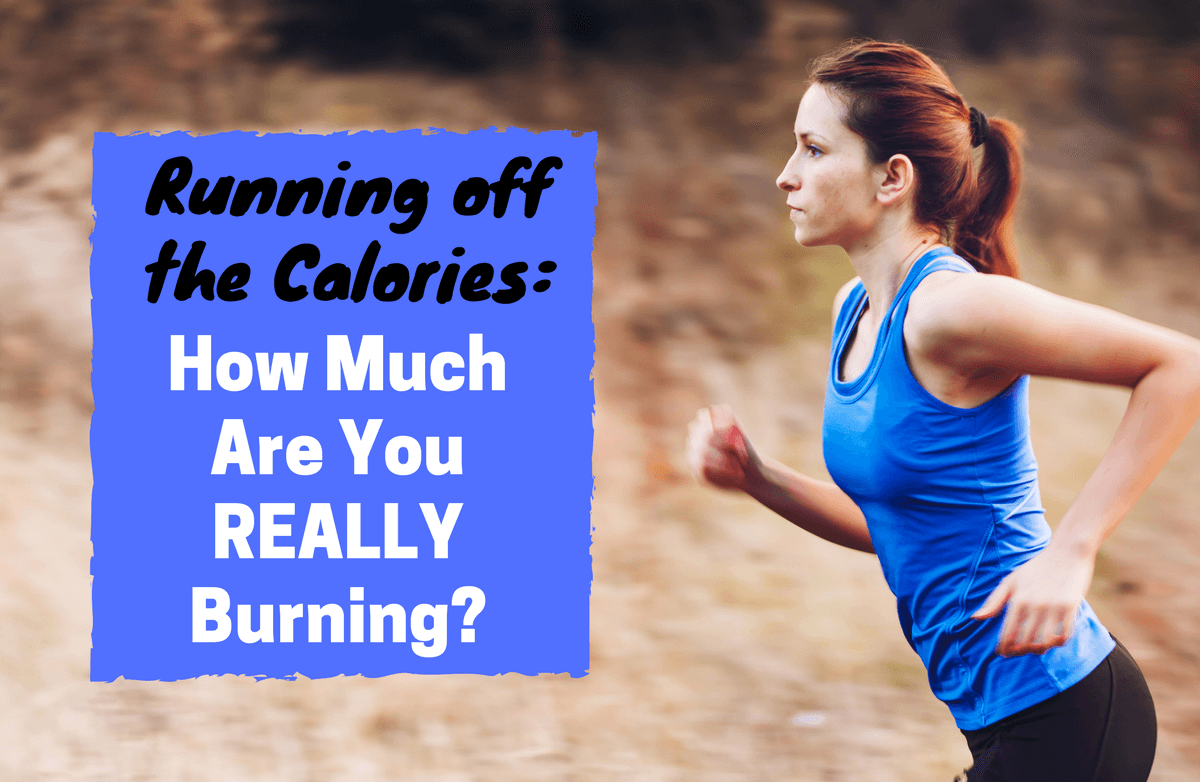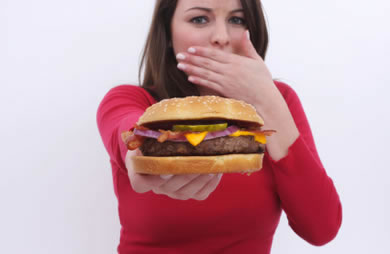|
I’ve just returned from a meeting at Harvard, where I participated in discussions about the new news in the science of addiction. Ironically, as I hopped on board my flight to Boston and was securing my seat belt, I looked up at the TV screen in front of me. It was lit up and clamoring for my attention with an invitation to "Chow Down. Eat Up!" Fascinated, I timed how long the invitation stayed up in my direct viewing. It stayed that way throughout the prep for departure and popped right back up after the flight attendant’s usual safety lecture. I felt like the screen was reaching right into my brain’s reward center, trying to infuse it with cues to eat, eat, eat! 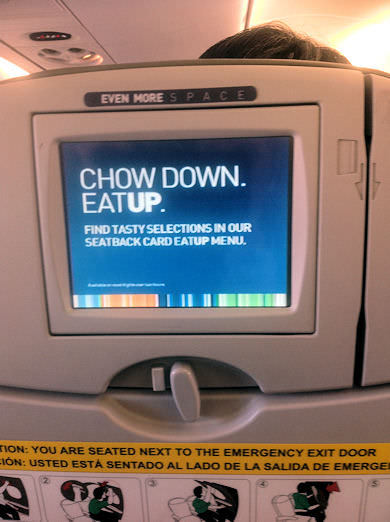 It’s only an hour flight, but as soon as it was safe, the attendants were soon marching down the aisles announcing "cookies or nuts?" Captive in front of the screen and now invited to eat some hyperpalatable sugary/fatty/salty products, I noticed that most people caved. The majority of people grabbed a bag or two of the free food fare, and washed it down with a soda. This vivid memory was front and center in my mind as I began my meetings, reflecting on the remarkable way our brains are subjected to hijacking opportunities every minute of the day. And there’s ground-breaking science to confirm that our reward centers are indeed undergoing real organic changes when we encounter any kind of cue to eat. Dr. Nora Volkow, Director of the National Institute of Drug Abuse, is a lead researcher in this field and has laid the groundwork for understanding how a cue affects how we make food choices. Peering into the brain using specialized brain scans, Dr. Volkow and her team found that it’s the cue, not the actual consumption of the food, that really ignites the emotion (limbic) and reward centers (nucleus accumbens) areas in the brain. In other words, there’s a process of conditioned learning that going on. Here’s the sequence: 1. The Memory is Set: You experience a sugary/fatty/salty food combo. You feel reward and pleasure. You’re influenced by any emotional/event association when you consumed the food--happy, sad, depressed, anxious, stressed. This is registered as a permanent memory in your reward center. 2. Berries Can’t Hold a Candle to Cake. If you continue to be exposed to that food combo on a regular basis, you reset reward thresholds such that the bowl of fresh berries is no longer seen as rewarding as the chocolate cake. 3. Hyperpalatable Food Cues Kick the Reward Center into Overdrive. With repeated exposure to any cue for that food combo, the conditioned reward center, working through memory circuits, is then expecting a very delicious reward, leading to the over-activation of the reward and motivation circuits, driving you to seek the food combo. 4. Impulse Control Is Impaired. While all of this is going on, the smarty pants part of the brain (prefrontal cortex) in charge of reining in those impulses to grab that over-the-top rewarding food combo, is actually inhibited from controlling impulsive overeating. The result is uninhibited feasting and often binging. Ladies, listen up because you’re at even higher risk for caving to the craving. Simply being female is a risk factor: A study in the journal Biology of Sex Differences found that female rats are more susceptible to addiction at smaller doses of drugs than male rats—which may help explain why women are more susceptible to emotional eating and binge eating. Now, top that with the well-established knowledge that as stress hormone (cortisol) levels rise when people are perceiving stresses that are associated with feelings of helplessness, hopelessness and defeat, the impulse to overeat and binge rises as well. Finally, let’s throw in sleep deprivation. Science now shows that when you haven’t gotten your ZZZ’s, the hormones in charge of controlling appetite and monitoring fat fuel in the body are completely deregulated. In simple terms, without enough sleep, you’ll mindlessly eat anything that’s not tacked down. This whole situation then leads to the perfect storm. Which brings us back to my Boston flight. Now we can see why people cave so easily. Flying is stressful so they’re already primed with an emotional explosion of anxieties, annoyances and irritations. They may be sleep deprived. They’ve already had plenty of experience with hyperpalatable food combos so their memory and anticipation is ready to rocket on a cue. And then, boom, the cue to eat pops up followed by the predictable and mindless hand-to-mouth foraging. So, what did I do? Hey, I’m human and I’ve had plenty of experience with caving to the craving. It’d almost be un-American not to. However, as an expert I am armed with knowledge that I’ve just had the pleasure of sharing with you. I’ve also had lots of practice powering up my prefrontal cortex and overpowering the seductive siren calls of the cues that surround us every single minute of the day. So, I make sure to get adequate sleep. I don’t skip meals and end up so hungry I’ll eat anything. I try to keep with me my own "safe foods" in my brief case and purse:
The bottom line is that we’re all surrounded by cues from every direction. Armed with this knowledge, it’s so important to protect yourself throughout the day with a laser focus on your self-care. Stick to that regimen of nutritious healthy meals and snacks, log your foods to stay accountable, stay active, and practice stress resilience so that life’s stresses don’t cause you to knee jerk right into overeating once again. Don’t cave to the cue and you won’t cave to the crave. How do YOU fight back against cravings? .jpg) Dr. Pamela Peeke is an internationally recognized expert, physician, scientist and author in the fields of nutrition, fitness and integrative medicine. Dr. Peeke is the New York Times bestselling author of Fight Fat after Forty, Body for Life for Women and her new book, The Hunger Fix: The 3 Stage Detox and Recovery Plan for Overeating and Food Addiction (Rodale, 2012), which presents the groundbreaking new science of food and addiction, noting the latest NIH based research showing that food addiction is real. Dr. Peeke is a Pew Foundation Scholar in Nutrition and Metabolism, Assistant Professor of Medicine at the University of Maryland and Fellow of the American College of Physicians. Dr. Peeke has teamed with the US Surgeon General to create the Surgeon General Walks for a Healthy and Fit Nation. She is a member of the Maryland Governor’s Council on Fitness, and is national spokesperson for the American College of Sports Medicine’s Exercise is Medicine global campaign. In her laboratory at the National Institutes of Health, Dr. Peeke’s original research helped establish the scientific foundation for the relationship between chronic stress and belly fat. She was also the first senior research fellow at the NIH Office of Alternative Medicine where she explored the new science of holistic and mind-body modalities. Dr. Peeke is a regular in-studio medical commentator for the national networks and is a monthly columnist and contributing editor for numerous national magazines including Prevention, O, Fitness, and More Magazine. Triathlete, marathoner and mountain climber, Dr. Peeke is founder of the Peeke Performance Center for Healthy Living™ where she conducts her Peeke Week Retreats teaching her Peeke Performers how to mentally and physically challenge themselves in magnificent outdoor destinations including hiking the Grand Canyon, Zion and Bryce National Parks. |
Popular EntriesMore From SparkPeople
|


.png)
